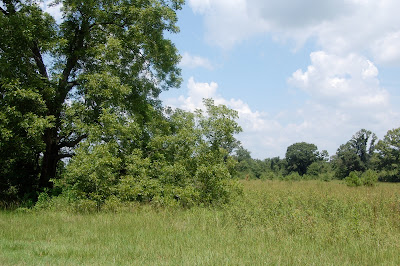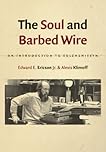The story described The Resort at Pelican Hill which is located a bit south of Los Angeles, and boasts an Italian chef, a floor-to-ceiling wine cellar, two ocean-side gulf courses, a Roman Spa (whatever that is), and one of the world’s largest saltwater pools. With room rates starting at $700 a night, it is a popular place for rich city folk looking for a weekend retreat. One of the people they interviewed in the story was a television producer, who was very happy with the place: “It's not even a tank of gas. So, if you really weigh things on what you're spending by spending a weekend there or three days there, as opposed to flying off to Hawaii for, you know, a four-day quick trip, you're better off going to Pelican Hill.”
Here’s the piece’s clever NPR ending:
Ms. TIEGEL [the aforementioned TV producer]: Because of the business that I'm in and the insanity of how it is every day and pretty much every night, to be able to get away and feel really removed from everything, if you want to be, is an incredible luxury for me.
BATES [the NPR reporter]: A nice thing for those who can afford it.
 I listened to this having just recently finished the wonderful book Meetings With Kontoglou by Constantine Cavarnos (you can read a segment of this wonderful book here), an author who I respect more and more with every book of his I read. The book, which is drawn from the author's journals, follows his friendship with the iconographer, writer, and thinker Photios Kontoglou, of blessed memory, during the 1950s and 60s.
I listened to this having just recently finished the wonderful book Meetings With Kontoglou by Constantine Cavarnos (you can read a segment of this wonderful book here), an author who I respect more and more with every book of his I read. The book, which is drawn from the author's journals, follows his friendship with the iconographer, writer, and thinker Photios Kontoglou, of blessed memory, during the 1950s and 60s. The Kontoglous lived in relative poverty even by the standards of their time, though Photios could have been a wealthy cosmopolitan artist in the West. They did not have a bank account or health insurance, had to struggle to keep their house (for a time during WW2 they had to live in a friend's garage). Yet his house was always open to visitors and filled with intelligent conversation, and, at least as Prof. Cavarnos describes it, the Kontoglous overflowed with piety, sensitivity, and intelligence. In the book, they were continually going on pilgrimage. One chapter describes a trip to the Monastery of Kaisariani:
The evening of September 25, when I was about to leave them, Photios and Maria told me that they had made arrangements to go on a pilgrimage to the Monastery of Kaisariani the next day. They invited me to join them there. I gladly accepted the invitation.He continues later:
The Monastery of Kaisariani was founded in the 11th century. Although no longer inhabited, it is a favorite place of pilgrimage for pious Athenians, because it is at a beautiful, quiet, restful site, and because its church has remarkable wall painting depicting holy personages and events.
This and many of the other stories in Prof. Cavarnos's book reminded me of Psalm 83: “Blessed are they that dwell in Thy house; unto ages of ages shall they praise Thee... For better is one day in Thy courts than thousands elsewhere.”[1]
The story of their retreat to Kaisariani was fresh in my mind when I listened to the quite different one described on NPR. I have nothing against saltwater pools or wine-cellars, but I would much prefer a weekend visit to a monastery than a stay at a place like Pelican Hill (and though we are not so fortunate in that respect as pious Athenians, we in Alabama are lucky enough to be only a 3 hour drive from the Monastery of the Glorious Ascension in Resaca, GA).
For that matter, I would prefer a weekend away to Elamville, AL the ancestral home of my wife's family, located a few hours south of here, where we happily visit from time to time. There isn't an Italian chef or anything, but there is an uncle who once to cooked for the army and, anyway, a fine catfish restaurant down the road; there's a nice road for walking, shaky cell-phone coverage for privacy, a tire-swing, and pecan trees.

Take that Californians!
To get away and be removed from it all, you don't need to pay thousands of dollars.
In any case there's no retreat for me anytime soon. We're off to Nashville for the weekend to visit friends. But maybe we'll get to see some snow.
[1] The Psalter According to the Seventy translated by Holy Transfiguration Monastery


